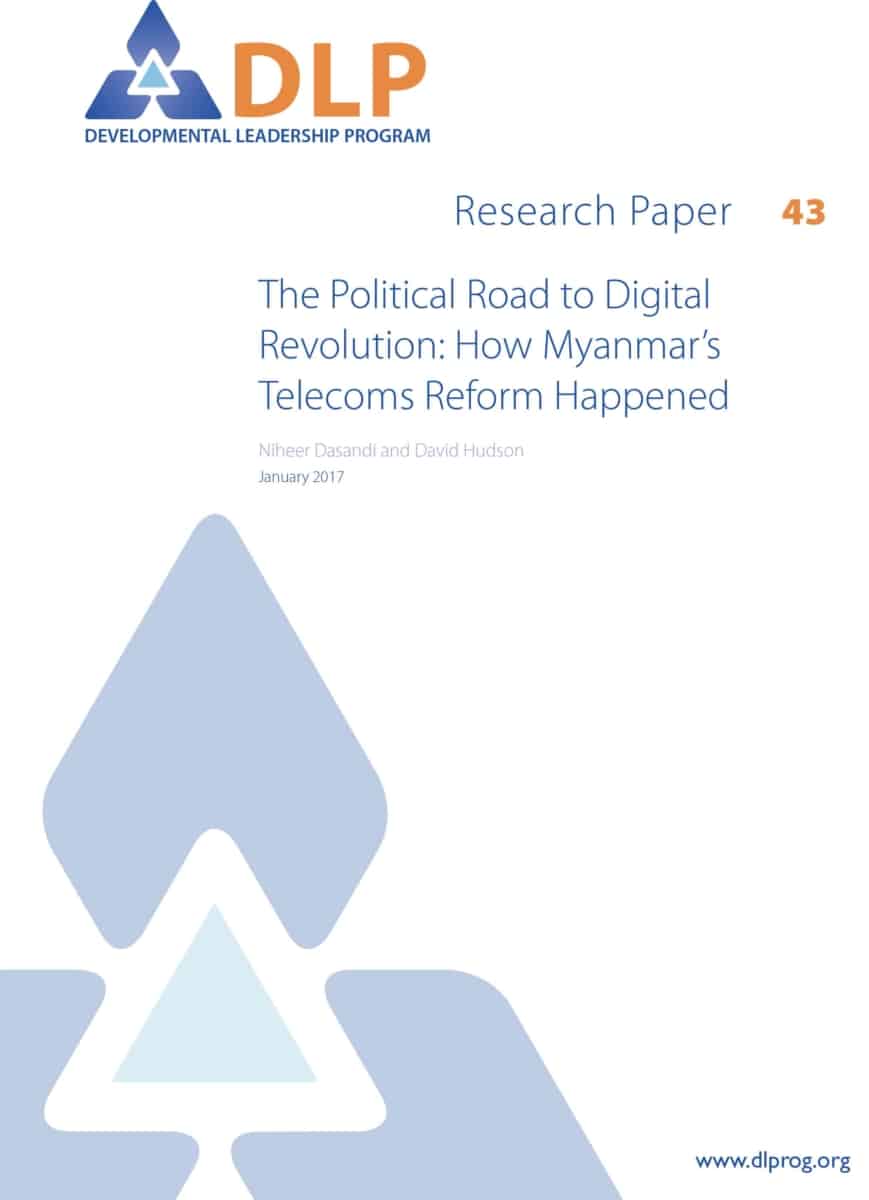This study examines the recent overhaul of Myanmar’s telecommunications sector, which resulted in a dramatic expansion in citizens’ access to mobile phones.
It explains how, in the context of the country’s transition to democracy and growing international openness, reformers were able to use political savvy, strong leadership and smart institutional design to make reform happen. It details the importance in this process of partnership, ideas and narratives, the politics of accountability, and a pragmatic approach to trade-offs.
The study also highlights the important role of a wide range of international processes and actors: not just donors, but also international rules and standards, foreign companies, embassy staff and specialist consultants.











